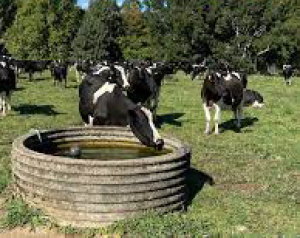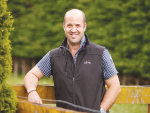Leptospirosis is widespread on New Zealand livestock farms and a webinar, hosted by Zoetis on March 19, will provide resource, and offer insights into understanding and preventing the disease.
Recent findings alarmingly indicating that 97% of sheep farms, 97% of beef farms and 76% of deer farms have Leptospirosis present. Humans primarily catch Leptospirosis from exposure to infected livestock or wild animals, so prevention of Leptospirosis in animals is central to protecting the health of both humans and animals.
The early symptoms of Leptospirosis often seem harmless enough, but the disease can cause severe illness, including liver damage, kidney failure, meningitis, heart failure, lung inflammation and pregnancy loss. As a bacterial disease which affects both humans and animals (including farmed livestock), the effects of Leptospirosis on rural communities can be severe and wide-ranging.
2023 saw the largest number of people diagnosed with Leptospirosis for 20 years, which highlights the urgent need for education on safeguarding both human and animal health. With over half of people diagnosed with Leptospirosis hospitalised and the detrimental effects on the health of livestock reported to be on the rise, Zoetis are set to host a webinar on Tuesday, 19 March at 12PM. Hosted by Laura Beasley, Veterinarian at Zoetis, the webinar will feature rural specialists including Matt Wyeth, chief executive, chairman and general shepherd at Spring Valley Enterprises, Tim Scotland, director at Southern Rangitikei Veterinary Services, a production animal veterinarian with a specialisation in dairy cattle and Professor Jackie Benschop Professor of Veterinary Public Health.
Wyeth will share his personal experience with Leptospirosis, underscoring the critical importance of awareness and prevention.
“Really I was quite lucky that it was a hospital used to treating rural cases and they picked it up that I most likely had Lepto”. Intensive treatment with antibiotics and an 8 day stay in hospital were needed before he could return home, but recovery was not rapid. “It was really six months before I could get back into doing things on the farm properly. Even today, three years later, I can occasionally feel the after-effects if I am getting a bit run down,” Wyeth recounts.
Scotland brings a wealth of real-world experience as a vet dealing with Leptospirosis outbreaks among livestock in the Lower North Island. As a veterinarian and epidemiologist, Benschop has become a renowned leader of Leptospirosis research within New Zealand and will highlight her knowledge that has been gained from her team’s research, as well as their ongoing efforts to understand this disease.
Farmers, veterinarians and anyone interested in the well-being of livestock and humans are encouraged to join this informative webinar to learn more about Leptospirosis, its impact, early symptoms, the importance of prompt diagnosis, and the potential severe consequences for humans and stock.
Event details:
Date: Tuesday 19th March, 2024
Time: 12PM – 1PM
To register for the webinar and access additional information, please visit
https://zoetis.zoom.us/webinar/register/WN_zllwPwU-Soav7fJTelnJXQ



















